Beach Landings and Takeoffs
A popular pastime in St. Maarten is going to the beach to watch the planes takeoff and land. Like most Caribbean...

“Yassas” (hello) was the familiar greeting as we checked into Greece on the island of Samos. It was good to finally be out of the marina, and nice to be in a familiar place where we know the language (sort of), procedures and lay of the land. It had been months since we left Greece last year, but the moment we arrived, our phones and internet worked, like magic. We have found that if we leave some money on our Cosmote account, the sim cards are good for one year and all you have to do is turn them on. One big hassle eliminated. If only it could be that simple everywhere. The check in procedure was also painless. While it involved three stops and lots of stamps, everyone was friendly “Yassas” and efficient. Add some money to the phone, pickup some provisions, and we were ready to go. While it was great to be one of just two boats in the anchorage, we had been to Samos before, and wind was coming from the wrong direction to stay there; so we moved on to the island of Ikaria.

What started out as a calm motor, turned to a smooth sail, and was followed by high winds and reefed sails. As we entered the harbor at Evdilos, we saw cranes and construction, but we also saw a nice big concrete dock with Berkeley East’s name on it, a perfect location for the coming wind. “Yassas,” we heard as we were securing Berkeley East to the dock. We turned to find the harbormaster smiling at us. “Yassas,” he said again, “welcome to Ikaria.” After a short conversation about where we had been and where we were from, he was on his way.
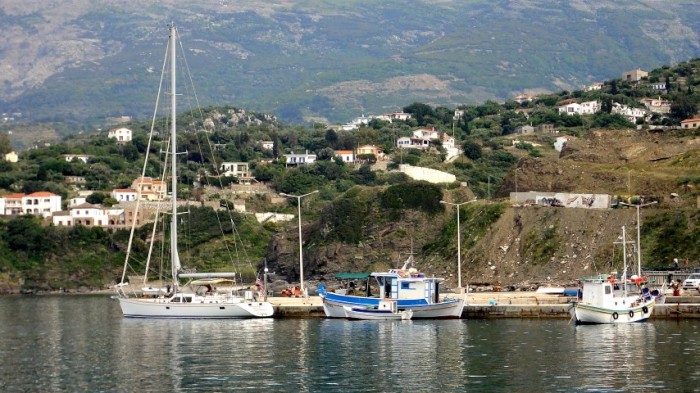
The town of Evdilos is small, basic and local. We were the only cruisers there, something we seldom experience. Walking the harbor and town takes about ten minutes. The coffee shop doubles as a cocktail bar, where everyone in town seems to congregate all day long.
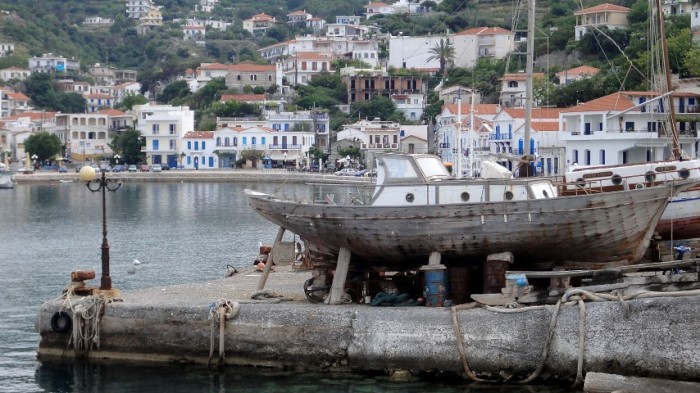
We made a plan to rent a car and see the island, said to be one of five Blue Zones (a demographic and/or geographic area of the world where people live measurably longer lives). In addition to local teas and honey, Ikarians credit their longevity to a plant-, and fish-based diet, coffee, wine, olive oil, naps and socializing. We already eat/do most of that; now, we are learning to like coffee.
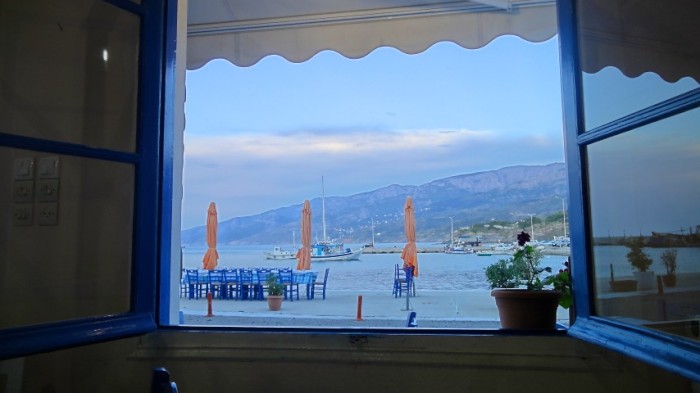
Our drive around the island was exhilarating, as Ikaria’s roads are winding, narrow, steep and often dirt. But the views were beautiful.

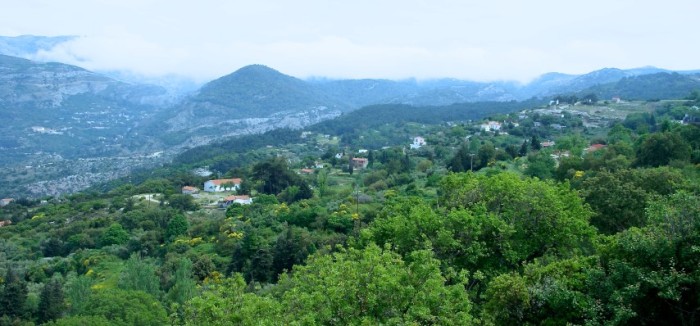
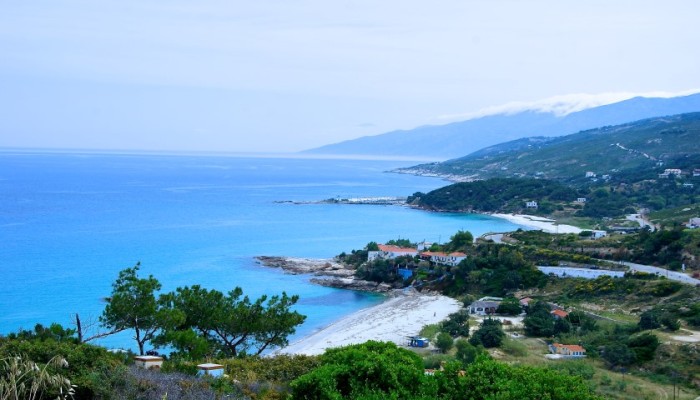
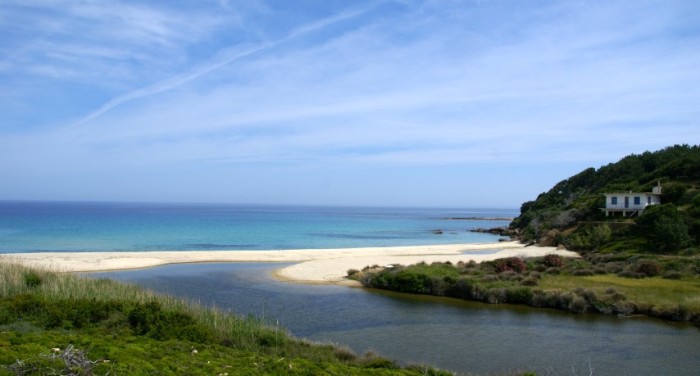
Surprisingly we found that Ikaria is well known for its wine. Imagine that? Weather forced us to stop at an island with wine! So during our road trip we planned a visit to a small family-run winery (Afianes) in Prophet Ilias, Raches. They make some very interesting wines from the local grapes. They grow Fokiano grapes for a wine that looks more like a rose, but has the body and taste of a red wine, and Begleri grapes, originally from Syria, that are now only grown on Ikaria. In addition to the winery, they have a small one-room museum with various historical items, including such things as gourds used to siphon wine from the underground clay pots where it was stored; and a bee smoker made of clay that used cow pies. What we thought was going to be a short visit to taste some wine turned into two hours of history, stories and a lot of fun.

Ikaria is also famous for her “Panagiria” festivals, traditional feast days that celebrate the Saints’ name days and other religious holidays. We were lucky that there was a festival the next day, so we made a plan to go. Just as we were about to leave BE for the festival, the winds came and we were reluctant to leave the boat. Next time, as Ikaria is certainly worth another chance to say “Yassas.”
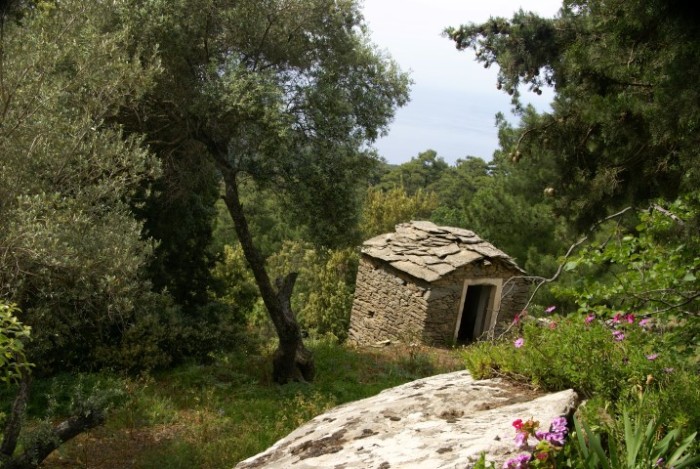
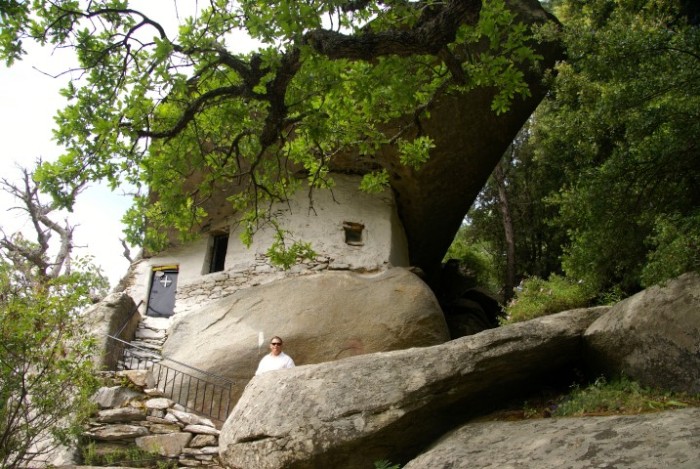
A small monastery built under a large overhanging rock. Nothing like living between a rock and a hard place
 Previous Comments
Previous Comments
Loving the blog, please keep up the great work! It a life-saver on a rainy day in England to follow your journey through Greece.